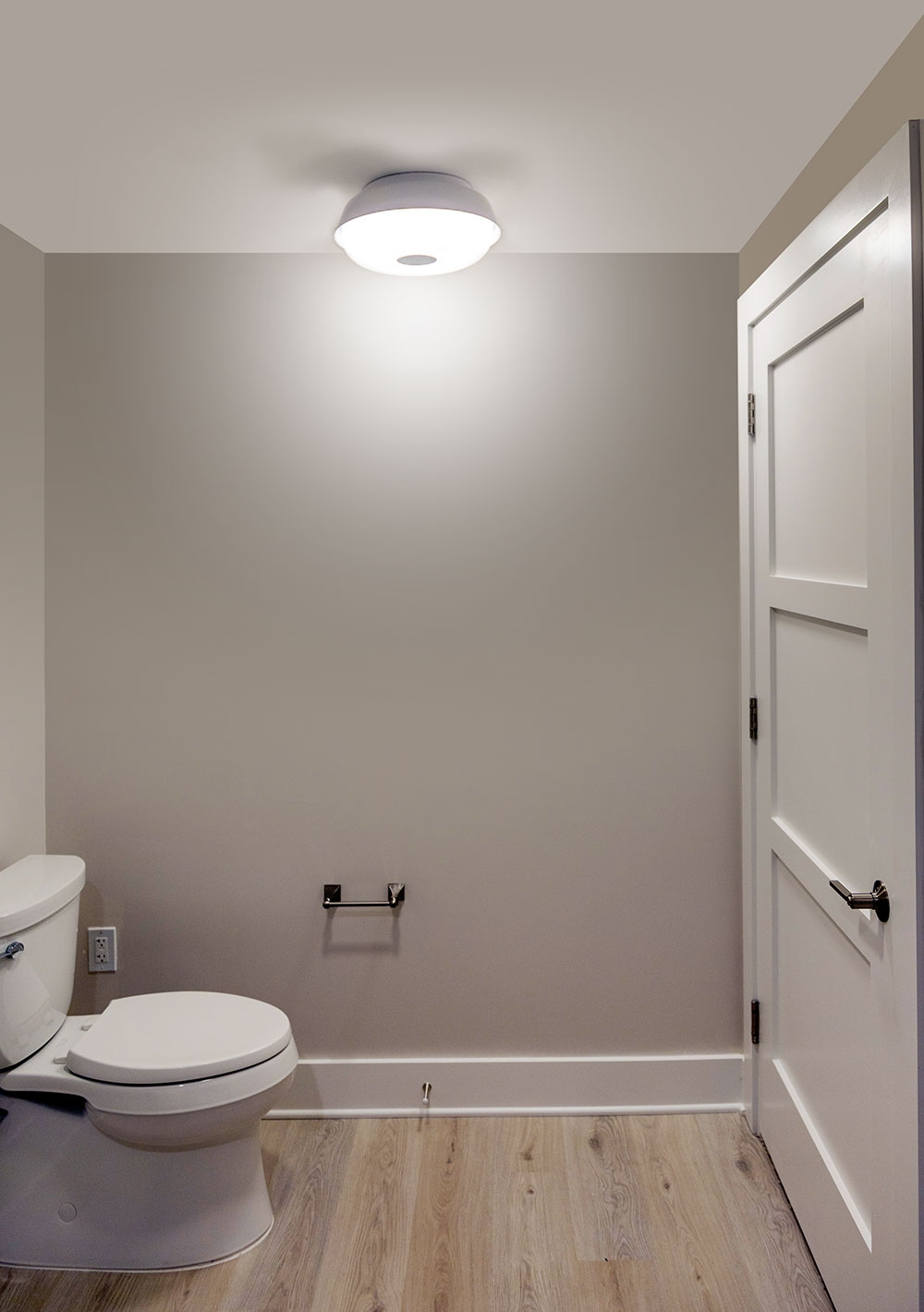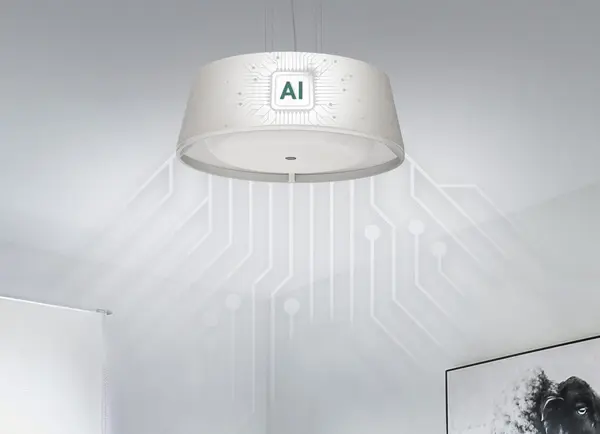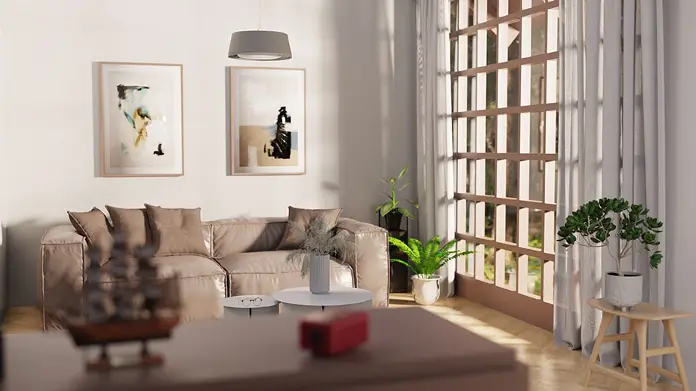In May, Nobi will be participating in ITU’s AI for Good Global Summit 2024 in Geneva, Switzerland, where companies and innovators from around the world will gather to demonstrate how AI can make an impact on society.
In our recent two-part blog series, we talked to Stijn Verrept, Nobi’s co-founder and CTO, on the company’s AI-enabled Smart Light and future plans to enhance those capabilities.
To build upon that conversation within the framework of “AI for Good,” we wanted to have a discussion with Joe Velderman, vice president of Innovation in Cypress Living, a premier provider of comprehensive senior living care and implementer of the Nobi Smart Lights.
Joe has a unique perspective on practical uses of AI and how it can be used for good to revolutionize different aspects of patient care and well-being, making it more personalized, efficient and accessible.

- Joe Velderman, vice president of Innovation in Cypress Living
When did AI hit your radar in terms of senior living care?
I first tuned in to what was happening in the AI landscape at the Senior Living Innovation Forum in 2022. There was a great speaker at that conference talking about generative AI and how transformational that technology was going to be. After following several different social conversations and seeing major corporations making partnerships with AI companies, I realized how quickly this was taking off and realized the potential for good if we make the right decisions. Practical, meaningful implementations of AI can be a good tool for us.
I spent the better part of 6 months deciding what our organization’s posture around AI was going to be. We created a guide – Responsible use of AI Principles at Cypress Living. We made this available to residents, family, employees, and published on the website… we feel strongly we want other organizations to make good decisions around AI right now. We expect to have our AI integration functional within 6 months.
Where can AI be helpful to you as an organization?
Understanding our residents is the basis for improving our services for them and ensuring they receive the best possible care. We want to use AI to get to know our residents better. We want to understand their habits, their lifestyles, and how well they are maintaining wellness in our community. A senior living environment is one – if not the only - care setting in the entire US based healthcare ecosystem where we have an opportunity to see our "patients" every day. And so anecdotally we know things about them: what time they wake up, use the toilet, when they go for meals, what they eat, when they go to the fitness center, what events they are participating in… and we don’t do anything with any of that information. We pay such close attention to our EHR and our billing platforms – because that is critical functions for us as an organization – but we don’t do anything else with the information we collect.
We synthesize all these data points – what does that mean? What story does that tell? This is where AI can really help us. We can position all this information that we have to AI in a secure way and the AI can look at that information and in a matter of seconds develop insights that we never even thought to ask for. I think that’s one of the real golden opportunities for aging services providers.
What types of insights are you looking for?
We have several key examples:
Sleep patterns: If a resident, over the course of 6 months, wakes between 6:30 and 7 a.m. and all of a sudden, they are sleeping in until 9 a.m., that’s something I want AI to be able to look at – that’s a trend behavior. It could be nothing wrong… but it could also mean someone is not feeling well or had some kind of healthcare incident. We can use that as want a trigger point for one of our wellness nurses to go visit that person to check in.
Bathroom utilization: Everyone has a common frequency of visits throughout the day – and more importantly throughout the night. If a common frequency is one per night, but then jumps to 4 or 5 times a night, that’s not normal – so we want to figure out what’s causing that. It could be a urinary tract infection… or it could mean nothing. With AI learning, there are things we can do as a provider with comprehensive healthcare services to prevent a trip to the ER or urgent care and prevent a far worse outcome.
Nutrition: If we see trends in nutrition that are rapidly changing, we can coach people on their nutritional habits. We can position academic articles, create nutritional events and campaigns on the campus to promote the idea of healthier eating choosing more healthy options.
It just boils down to being able to synthesize all of that information and look for alarming patterns or trends that we can present to our caregivers.
Residents are aware that you will be using AI tools in the near future. Any pushback?
I think we’ve had a fairly traditional bell curve response to that here in our organization. At the end of the day if we are transparent about our use of AI it’s going to come down to whether residents trust the brand to do that in a responsible way. I think creating our “Principles on AI” has built a lot of trust – residents can see our posture on that and say I agree with that posture – that’s a good posture. And probably 10% who understand AI and data capture and have read our principles and don’t agree that we should be capturing that level of information – and that’s OK too. We give them the ability to opt out.
What is your experience with the AI capabilities in the Nobi Smart Lights?
Nobi is a great practical example of another flavor of AI. It is not generative AI, but it is using artificial intelligence to look for behavior changes. Nobi is doing AI in real time – the processing is on the device rather than the cloud and that’s great from a privacy perspective. The AI is looking for a rapid change in posture, a decline in posture, and creating a conversation around that before it creates and alert. For fall detection and prevention this is key.
"When I look at life safety services, that space hasn’t evolved in the over 20 years I’ve been in this industry. The life safety platforms that we have always had have been archaic systems that require someone to pull a cord or press a button when they need help. And the reality is that people don’t always have the ability to do those things when they need help, especially after a fall."
And this more passive way – monitoring people and allowing them to live their life without constantly being worried about being next to a pull cord or tethered to a button - gives them a lot of freedom, a lot of dignity, and provides our residents with a lot of opportunities to be safe in their home.
You have Nobi lights installed in 48 of your new Independent Living homes at Cypress Cove – what is the resident reaction?
Every single resident has an appreciation for the intentionality our organization has put behind the thoughtfulness of Nobi as part of our life safety platform.
"I think residents realized what we realized: the pull cord system has gotten us to where we are today but is not the best solution moving forward. Between the beautifully designed light – which helps promote a lot of dignity - and the optical sensor and the artificial intelligence, Nobi is just a better choice when it comes to detecting and preventing falls."

Getting back to the AI for good conversation – Nobi is a great example of AI for good:
"There’s technology available now, like Nobi, that can help us do better. I think it’s our responsibility as providers to find out ways we can do better and implement them for the safety and wellbeing of our residents. We have to do better."
Would you like to know more about Nobi's smart lights? Contact us now or book a free demo.





